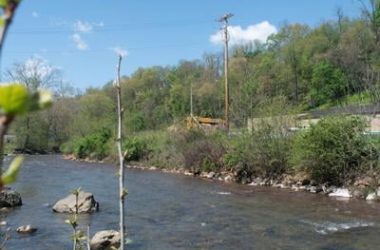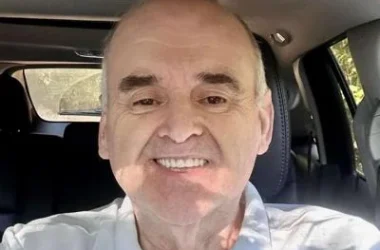 By Phil Kabler
By Phil KablerFor the West Virginia Press Association
CHARLESTON, W.Va. — With the 60-day regular session of the Legislature moving toward its midpoint, Gov. Jim Justice and legislative leaders remain far apart on how to close a $500 million deficit in the 2017-18 state budget.
Facing legislative pushback on his original budget plan, Justice last week unveiled a Budget 2.0 that reduces proposed increases in sales taxes, gas taxes, and business gross receipts taxes, making up some of the difference with hikes on tobacco taxes and on sugary soft drinks.
“Here’s what it has to be for me: Balance the budget, but don’t cripple us,” Justice said at a press conference to explain his new plan.
He also criticized legislators who have denounced his budget proposals, which rely predominately on tax increases to close the budget gap, but have yet to come up with any alternative plans.
“I’ve surely heard some criticism to the plan, but I haven’t heard back alternatives that we can do,” said Justice, who set up an electronic clock on his website and outside his Capitol offices to count down the time remaining in the legislative session.
“The clock is ticking, the session is almost halfway finished and the Legislature still hasn’t come up with a budget,” Justice said, unveiling his countdown clock. “This budget crisis won’t be solved by wasting time. I want the people of West Virginia to realize that the Legislature is on the clock and needs to get moving.”
Key changes Justice made to his budget plan include:
— Lowering the proposed increase in the consumer sales tax from ½ percent to ¼ percent, providing $46.5 million of new revenue, as opposed to $92.7 million in the original proposal.
— Lowering a proposed business gross receipts tax from 0.2 percent to 0.00075 percent, raising $80.4 million, instead of $214.3 million as originally proposed.
“This almost becomes next to nothing,” Justice said of the burden on state businesses.
— Retaining a state sales tax exemption on advertising, saying the additional $5.4 million of revenue was “just not worth” the additional costs to businesses, as well as administrative costs to the state. (The revised plan still calls for repealing sales tax exemptions for professional services, primarily legal and accounting services, to raise $78.9 million a year.)
To make up for those revenue reductions, Justice unveiled what he called a “Better Health Initiative for West Virginia,” which would impose a one-cent per ounce tax on sugary soft drinks to raise $85 million, and a 50-cent per pack increase on cigarettes, to raise $47.8 million.
Justice said health advocates had convinced him the increases would not only raise revenue, but would help improve the health of state residents.
“Gosh knows, it would have been great if I’d drank a few cans less of sweet soda pop,” he joked.
Justice also revised funding proposals for his plan to sell some $2.8 billion of road bonds, part of a roads construction package he said is critical to jump-start the state economy by creating 48,000 jobs.
“It does create immediate jobs – significant immediate jobs,” he said, estimating that payroll taxes from workers on the highway construction projects would top $200 million a year.
Justice’s new plan lowers a proposed increase in the state gas tax from 10 cents to 4.5 cents a gallon, but would increase tolls on the West Virginia Turnpike by $2 per toll instead of the $1 increase originally proposed.
Under the proposal, the state would offer EZ-Pass annual passes for $8 a year that would provide free travel on the Turnpike as well as any other highways the state may decide to operate as toll roads.
In other legislative action:
The House of Delegates passed a controversial measure addressing pollution discharges into state rivers and streams (HB2506) on a 63-37 vote.
The bill would change the way the state Department of Environmental Protection measures stream flow when determining the amount of pollutants that chemical plants and factories may discharge into waterways.
Proponents of the bill say it will help the state compete for economic development, although conceding there is no way to project just how many new jobs it may or may not create.
Critics of the bill pointed to the 2014 Kanawha Valley water crisis to show the need to maintain the highest water quality standards.
“We know how precious our drinking water is,” said Delegate Barbara Fleischauer, D-Monongalia.
The bill goes to the Senate.





